The global currency storm is approaching: the US dollar is falling, the pound is rising, how is the foreign exchange market planning?
This week, the foreign exchange market experienced a series of major events, with the trends of the US dollar, Japanese yen, British pound, euro, and Canadian dollar becoming the focus of market attention. The release of US employment data has led to a continued decline in the US dollar, while the uncertainty of the French election has provided upward momentum for the euro. The pound has strengthened under the impetus of the UK election results, while the Canadian dollar is facing pressure due to weak employment data in Canada.
US dollar: continued decline, expected rate cuts heating up
This week, the US dollar continued its decline due to the adverse impact of employment data. The non farm payroll in the United States increased by 206000 in June, and the unemployment rate rose to 4.1%, exceeding expectations. These data enhanced market expectations for the Federal Reserve to start cutting interest rates in September, causing the US dollar index to fall 0.28% to 104.87 and hit a three week low in early trading. The US dollar also fell 0.34% against the Japanese yen, briefly approaching 160.45 yen.
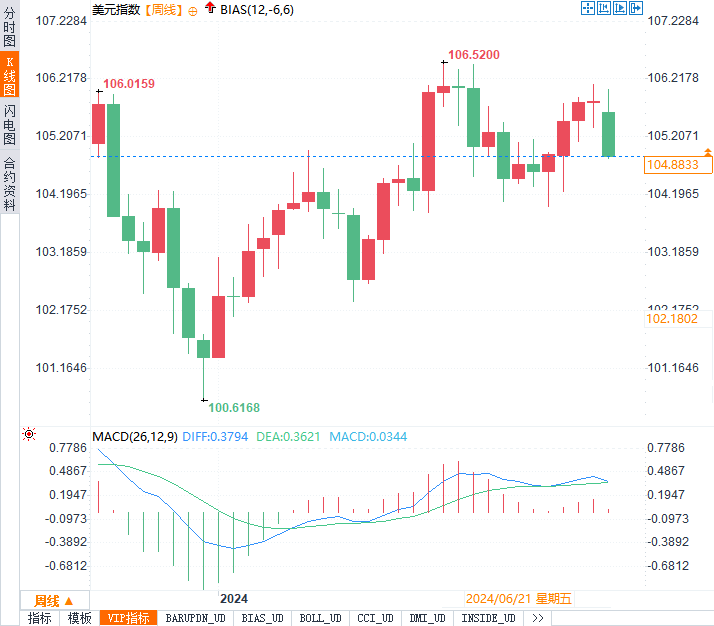
Market strategist Karl Schamotta pointed out that the confirmation of a slowdown in the labor market has increased the possibility of the Federal Reserve discussing interest rate cuts at its July or August meetings.
Japanese yen: hovering at a low level, market expectation intervention
The Japanese yen has slightly strengthened against the US dollar this week, but overall it remains at a low level. Market participants are paying attention to whether the Japanese authorities will decide to intervene to support the yen. Despite a slight increase in the Japanese yen, the market remains cautious about possible intervention actions by the Bank of Japan, which may have an impact on the short-term trend of the yen.
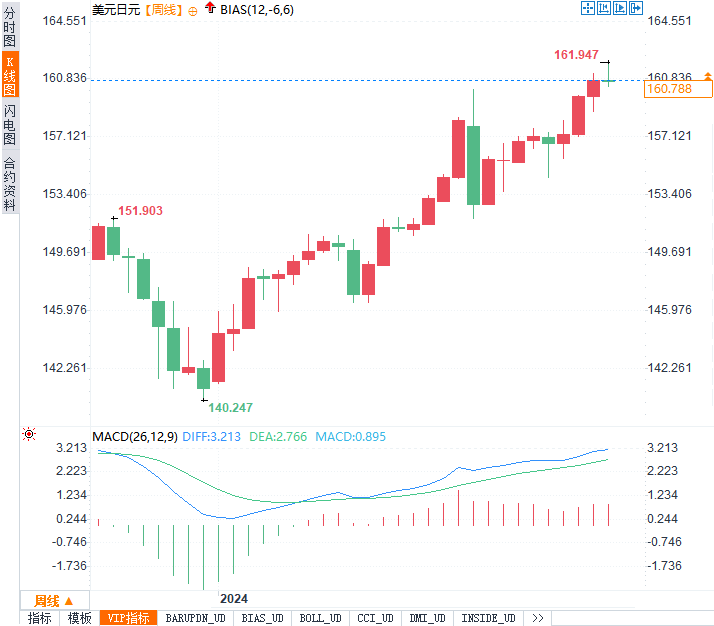
GBP: Political stability expectations driving up gains
The pound strengthened after the victory of the Labour Party in the UK general election, rising 0.46% to $1.2814. The market expects the UK to usher in a period of political stability and fiscal discipline, which provides support for the pound. The political development in the UK is seen as a positive signal for the economic outlook, which has driven the rise of the pound.
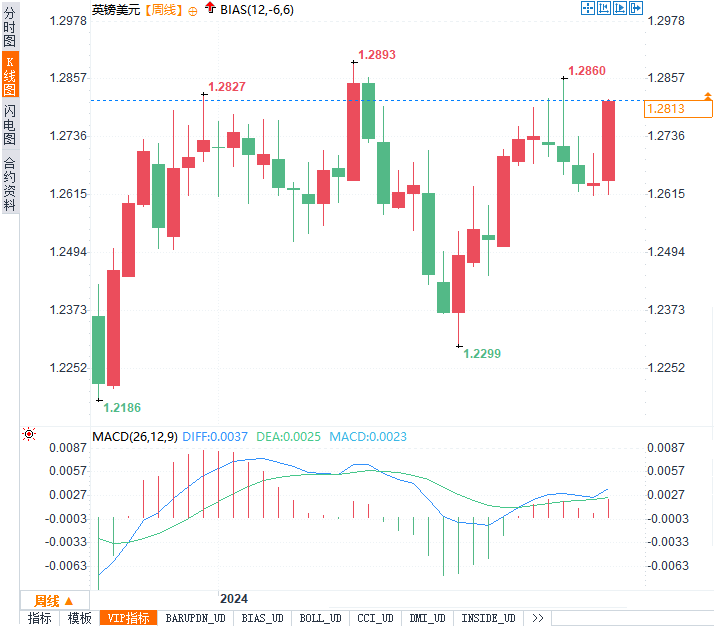
Euro: Uncertainty Supports Rise Prior to Election
The euro rose in uncertainty ahead of the French election, rising 0.23% in late trading to $1.0835. There are signs in the market that France may face a hung parliament, rather than the far right party, the National League, gaining a majority in power, which provides support for the euro. In addition, the National League led by Le Pen received one-third of the votes in the first round of parliamentary elections, which increased the likelihood of the far right leading the French government and further affected the trend of the euro.
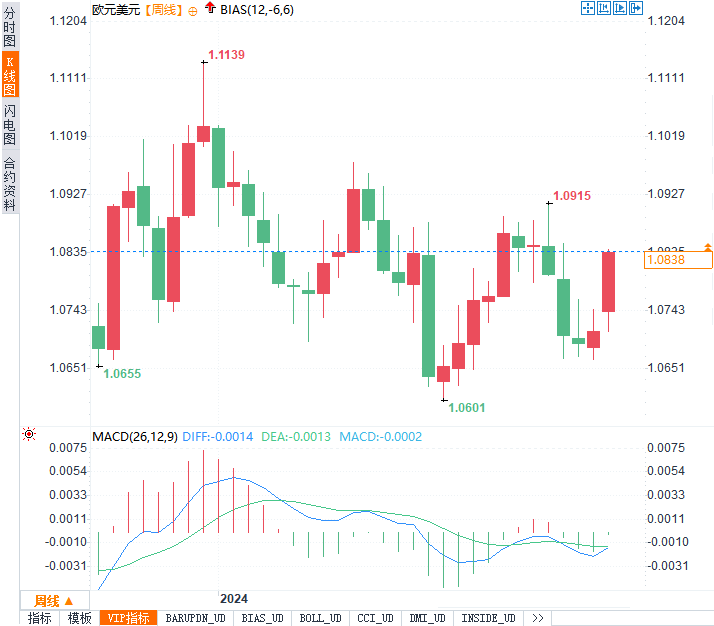
Canadian dollar: weak employment data and increased expectations of interest rate cuts
The employment market in Canada remained stagnant in June, with the unemployment rate rising to 6.4%, increasing market expectations for the Bank of Canada's interest rate cut in July. The USD/CAD recovered all losses from the previous trading day under the influence of this data, but still faced selling pressure around 1.36. The expectation of interest rate cuts from the Bank of Canada and the weakness in the job market have put pressure on the Canadian dollar.
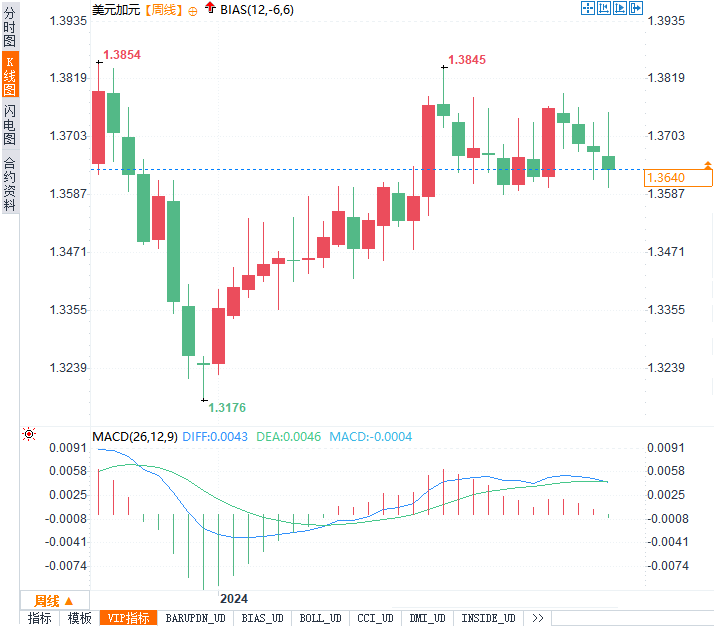
Analyst and institutional perspectives
Corpay's Karl Schamotta: It is expected that the possibility of the Federal Reserve discussing a rate cut in September will increase at its meeting in July or August.
Daniel Tobon from Citigroup: The weak US economic data has put pressure on the US dollar.
BMO's Douglas Porter: The weak job market increases the possibility of the Bank of Canada lowering interest rates, but the stickiness of wage growth will make the central bank hesitant.
Desjardins Royce Mendes: The Bank of Canada should continue its interest rate cutting cycle in July.
Market Focus This Week
Monday: Market opening and geopolitical monitoring
On Monday, the market is usually relatively calm, but investors need to be wary of any geopolitical dynamics that may affect the value of the currency, especially the tense situation or progress of reconciliation in global political events.
Tuesday: Senate testimony from Powell
Federal Reserve Chairman Powell will deliver a semi annual monetary policy testimony to the Senate Banking Committee. The market will closely monitor its comments on the current economic situation, inflation expectations, and future monetary policy paths.
Wednesday: Multiple data affecting the market
Powell continues to testify before the House Financial Services Committee, and the market will continue to search for clues about interest rate policy.
Meanwhile, investors will also pay attention to the June Consumer Price Index (CPI) in the United States to assess inflation trends and their potential impact on monetary policy.
Thursday: Unemployment benefits application and market response
The weekly unemployment benefit application data will provide the latest information on the state of the US labor market, and the market will analyze its impact on economic recovery and currency demand.
Friday: Intensive release of economic indicators
The June Producer Price Index (PPI) in the United States will provide a perspective on changes in production costs, which is of great significance for predicting future inflation and consumer price trends.
The initial value of consumer confidence at the University of Michigan will reflect the level of consumer confidence in the economic situation and future expectations, and have a direct impact on market sentiment.
The trend of the foreign exchange market this week reflects the profound impact of global economic data and political events on the value of currency. The US dollar continued to decline under the influence of employment data, while other currencies such as the pound and euro were positively driven by their respective domestic political developments. The Canadian dollar is facing challenges due to weak domestic employment data. Looking ahead, the policy trends of the Federal Reserve and other central banks, as well as global political and economic events, will continue to shape the trend of the foreign exchange market.
Tips:This page came from Internet, which is not standing for FXCUE opinions of this website.
Statement:Contact us if the content violates the law or your rights
